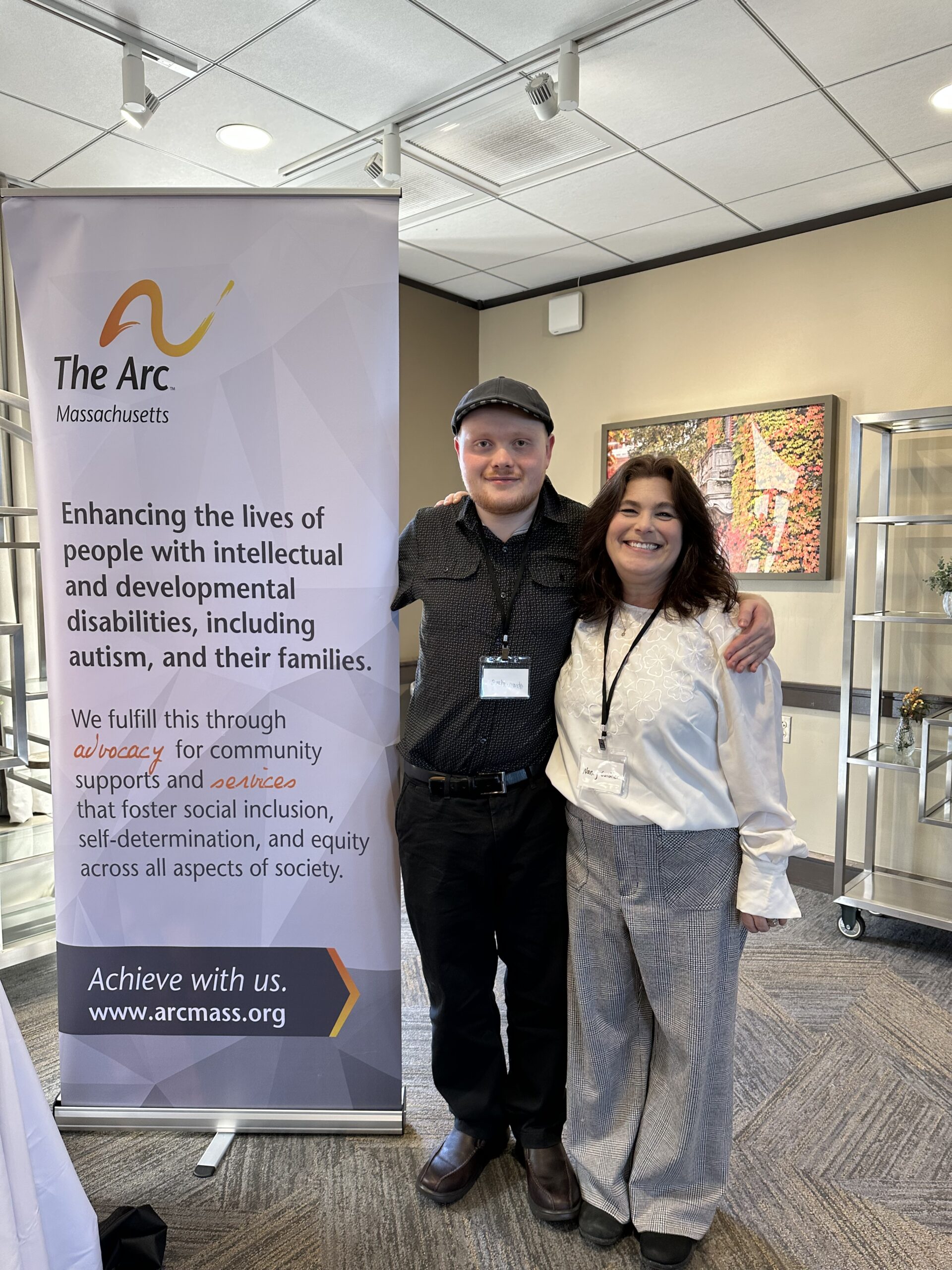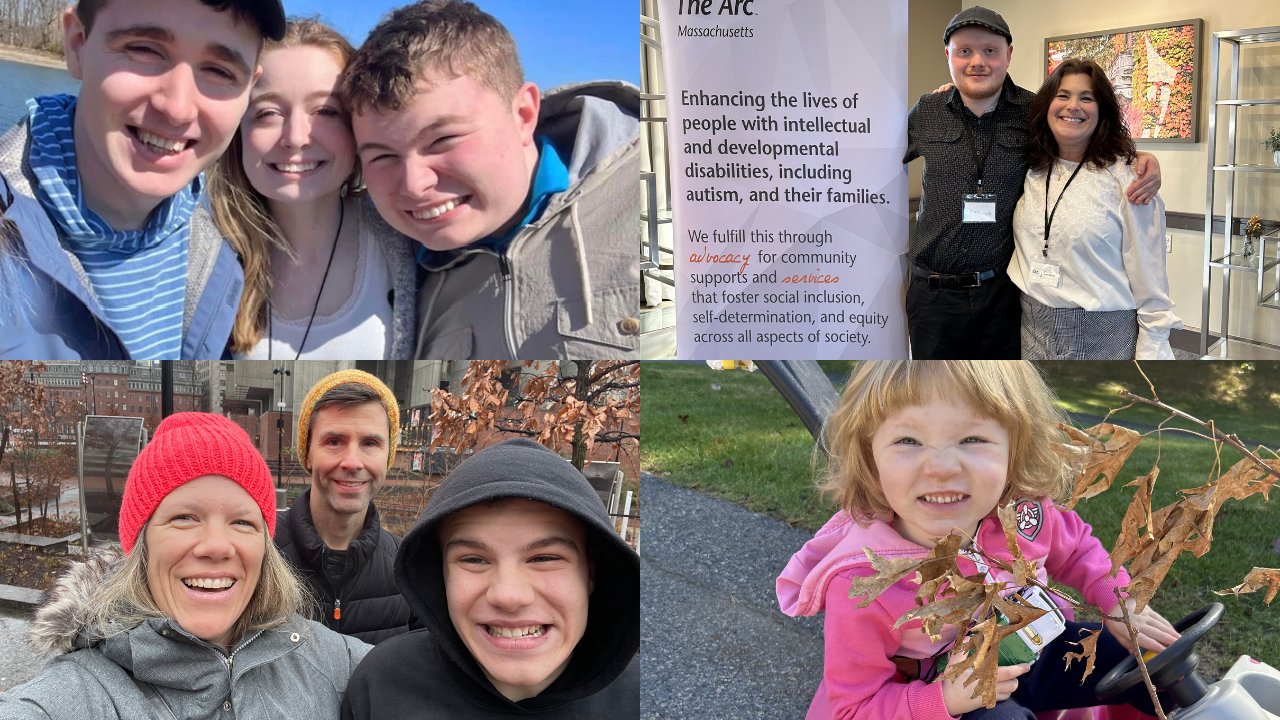November is a time of giving thanks and expressing gratitude to those who are important in our lives. Fittingly, November is also National Family Caregivers Month – a time to highlight the tireless work and often ignored experiences of the individuals and families who give their all to support their loved ones with and without disabilities.
CEO Maura Sullivan recently hosted an inspiring panel discussion with three caregivers – Extraordinary Every Day – where parents and siblings came together to share their lived experiences, fears, hopes, and self-care advice. You can watch the replay of that moving conversation on demand now.
As we celebrate caregivers this month, we asked the staff of The Arc of Massachusetts what being a caregiver means to them and their families. Here are their responses.
Maura Sullivan, mom of Neil and Tyler, young adults with autism and intellectual disabilities: “November is National Family Caregivers Month, a time to honor the role that fills me with pride and sometimes exhaustion. As the parent of two adult sons, Neil and Tyler, who have autism and complex needs, I live the joys and challenges of caregiving every day. My commitment is endless, but right now, the emotion that I am feeling is fear.
For years, my worry has been about the inevitable: Who will provide the daily care and unconditional love my sons need after I’m gone? My daughter is extraordinary and a fierce advocate for her brothers but should caregiving for them be an expected or definitive part of her future? And if being their caregiver is a role she wants to take on, how can I make this role easier for her?
My worries feel more urgent now. The devastating, looming cuts to Medicaid and other essential safeguards threaten the lifeline supports that my sons rely on for survival and dignity in their community. For older caregivers like me, this crisis forces us to search for multiple backup plans when the existing foundation is actively undermined.
This is why the innovative work being led by Leo Sarkissian is so critical. His After I’m Gone project offers a vital path forward, giving aging caregivers the tools and connections they need to secure their loved one’s future. It could not come soon enough.
Neil, Tyler, and their sister Gillian are my greatest gifts. They deserve a secure future. As their lifelong devoted caregiver, I deserve this peace of mind. We must fight now to protect the system that supports them.”
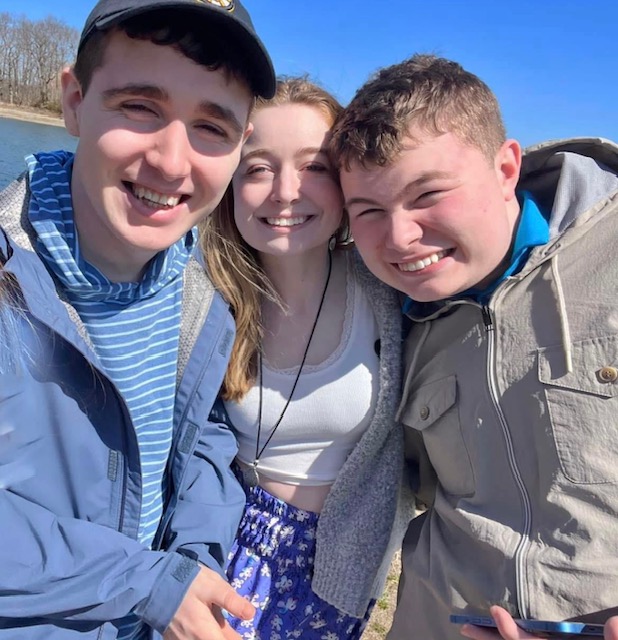
Ashley and Damon Waring, mom and dad of Alden, a 20-year-old young man with autism and an intellectual disability: “Being a family caregiver means taking lots of walks, making daily schedules, sticking to routines, and arranging all of our ‘free’ time around making sure Alden is happy, healthy, and busy doing things he loves.
Being a family caregiver also means being a full-time therapist. When he needs to process his big emotions or work through a tough day, we are the ones who support him through every minute.
Being a family caregiver means asking for help and taking breaks when we can, because it’s a marathon, not a sprint!”
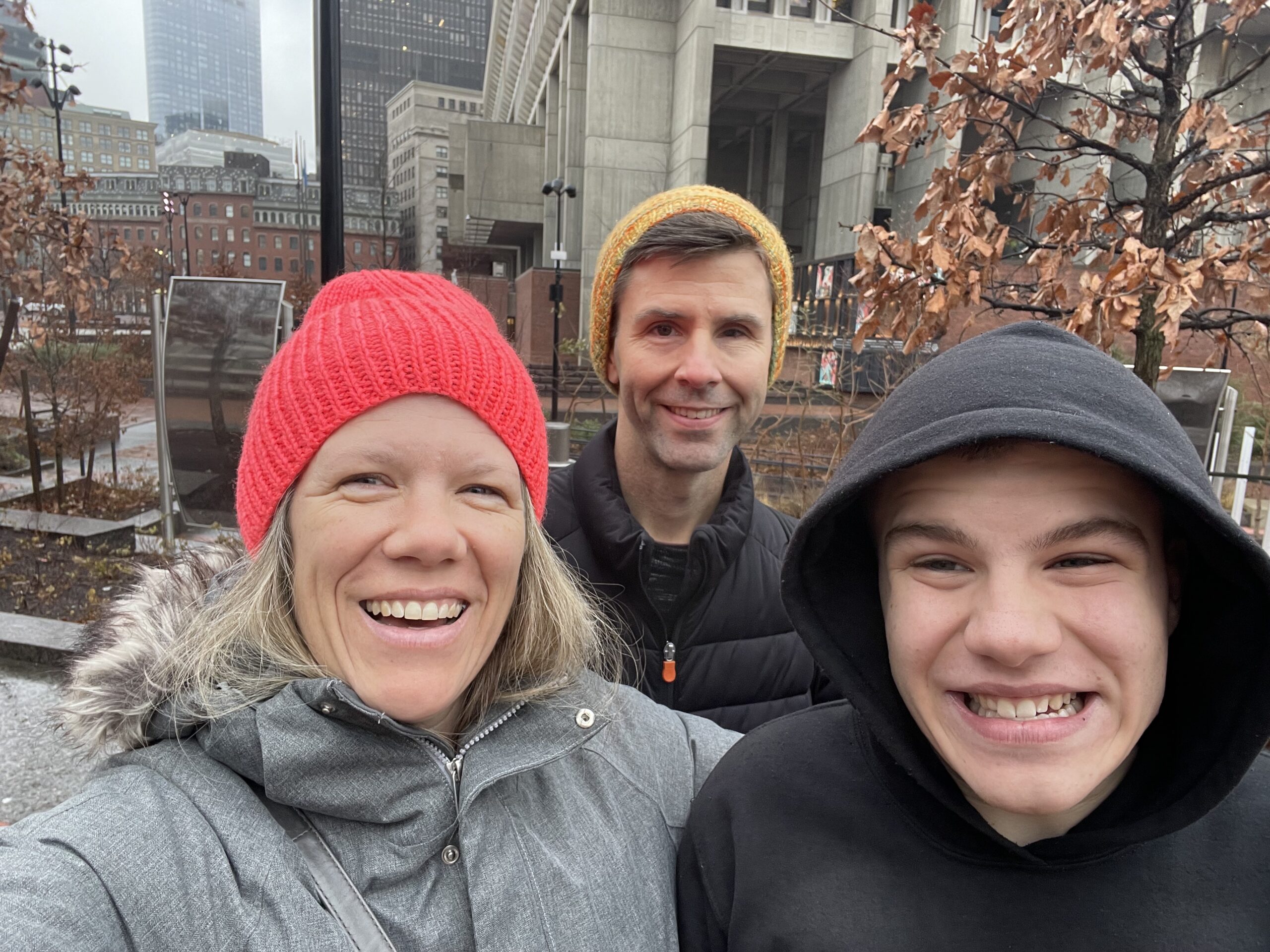
Dotty Foley, mom of 35-year-old Dylan who has autism and an intellectual disability: “Caring for my son, Dylan, is like being a lighthouse on a rocky shore. I guide him safely through life’s challenges, shine a light on opportunities, and provide a steady presence he can rely on, even when the waters are uncertain.
While family caregivers meet daily needs, we also advocate, support, and create pathways for our loved ones to thrive. Our work is often unseen, but essential as we help those we care for navigate the world with confidence, connection, and joy.”
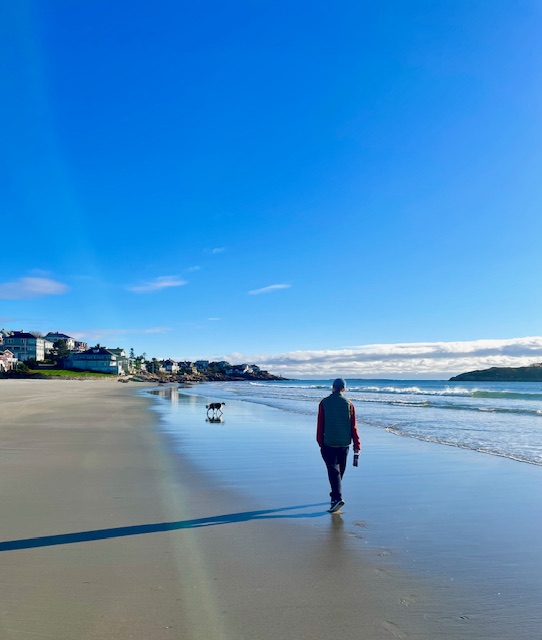
Katrina Delaney, mom of Keira, who is 4 years old: “Being a caregiver for a child with a disability means becoming their strongest advocate and managing the complexities of their medical care with love and persistence. It’s about believing your child will live a happy, meaningful life and helping others see their strengths so they can flourish. Caregiving can be both deeply rewarding and deeply exhausting. Some seasons feel overwhelming, while others bring light and ease.
Part of being a good caregiver is learning to care for yourself, too, so you have the energy and grace to keep showing up. Through it all, caregiving brings growth, stronger family bonds, and a profound sense of purpose.
I am mom to Keira, my hilarious, joyful, and endlessly curious 4-year-old who lives with a rare brain and genetic condition and happens to be on the autism spectrum.”
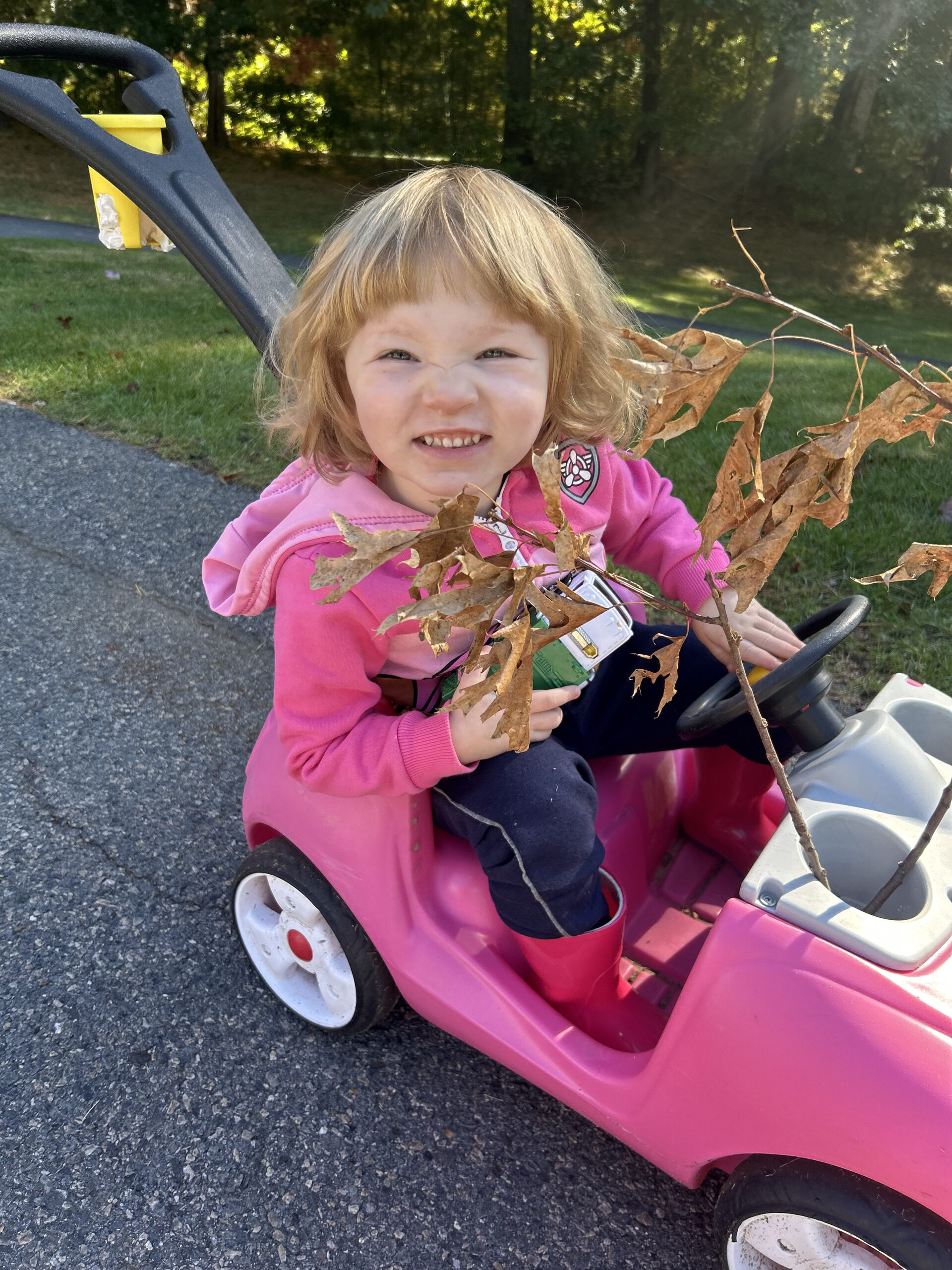
Nancy Gardner, mom of 22-year-old Jonathan: “My name is Nancy Gardner, and I am blessed to be the mom of Jonathan, a 22-year-old advocate, cancer survivor, and as he likes to say, someone who happens to have autism.
At a recent event honoring individuals and caregivers, I stood clapping for others, not realizing that ‘caregiver’ included me, until someone called me up to join them. That moment overwhelmed me with emotion and helped me recognize caregiving as one of my many roles alongside being Jonathan’s mom, teacher, support person, and job coach.
Jonathan has taught me that caregiving means walking beside someone as they grow, heal, and find their way. Family caregivers are often the quiet, steady hearts behind the scenes. I’m proud and privileged to be one of them.”
